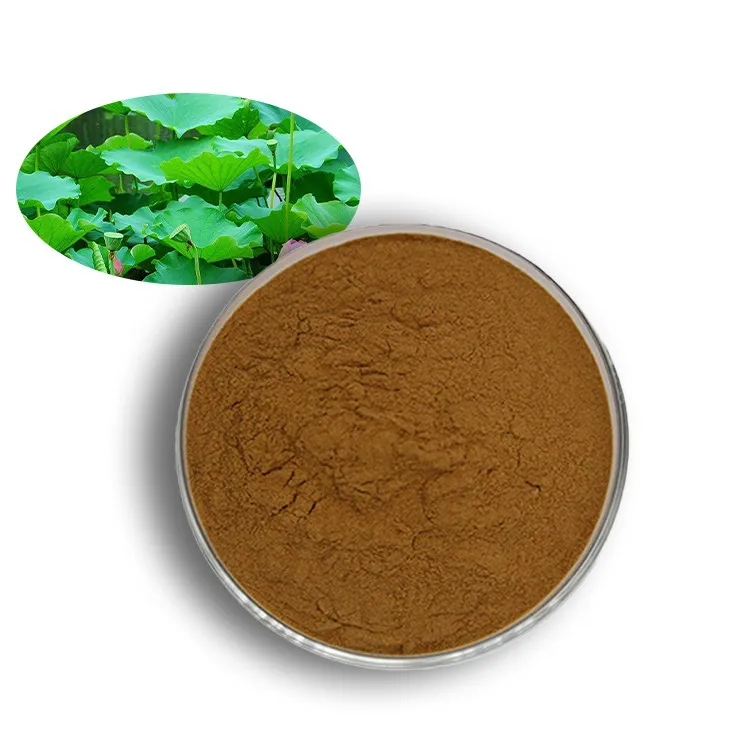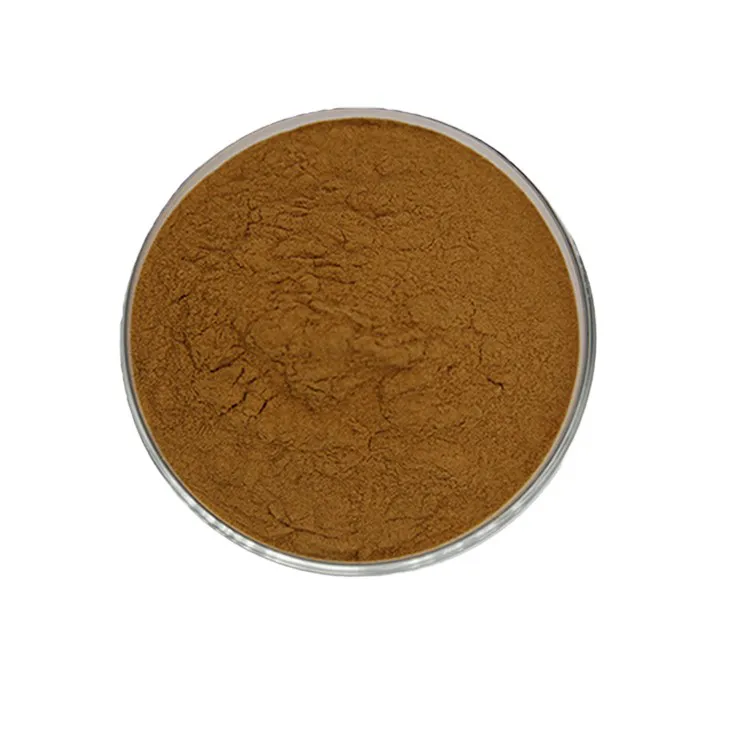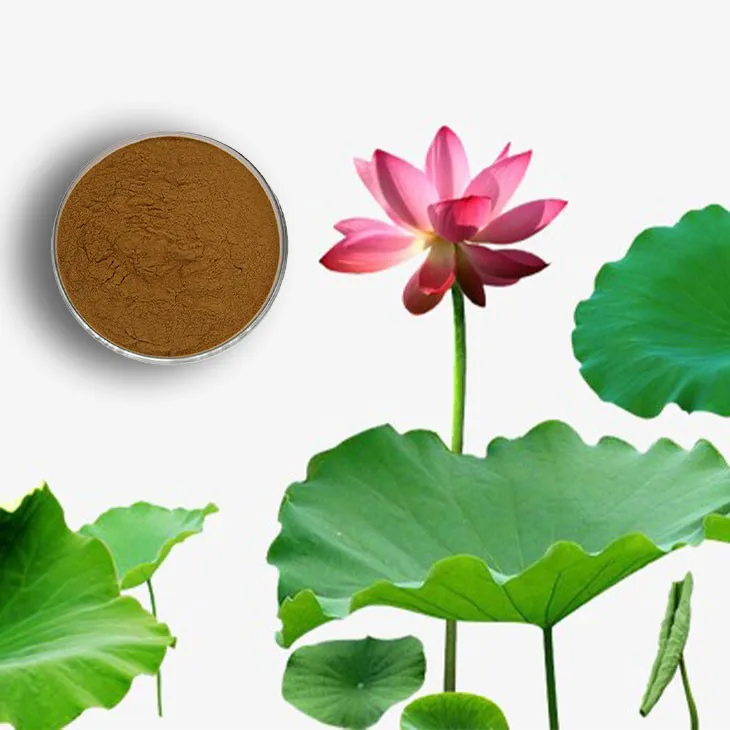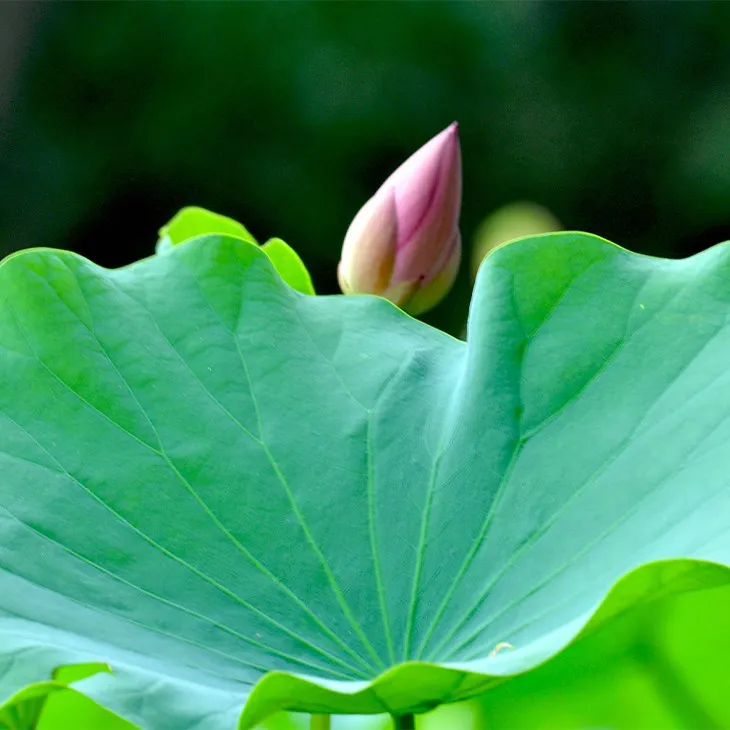- 0086-571-85302990
- sales@greenskybio.com
Benefits of Lotus Leaf Extract in Cattle Feed.
2024-11-13

1. Introduction
In the world of animal husbandry, the search for natural and effective feed additives is constantly evolving. One such emerging candidate is Lotus leaf extract. The lotus plant, known for its various medicinal and nutritional properties in traditional medicine, has components in its leaves that can potentially offer significant benefits when included in cattle feed.

2. Composition of Lotus leaf extract
Lotus leaf extract contains a diverse range of bioactive compounds. These include alkaloids, flavonoids, and tannins. Alkaloids are known for their potential physiological effects on animals. Flavonoids are a large group of polyphenolic compounds with antioxidant, anti - inflammatory, and other health - promoting properties. Tannins can also play a role in digestion and have antimicrobial effects to some extent.

3. Benefits of Lotus Leaf Extract in Cattle Feed
3.1. Enhancement of the Immune System
Cattle are susceptible to a variety of diseases, which can lead to reduced productivity and economic losses for farmers. The inclusion of lotus leaf extract in cattle feed can help enhance the immune system of cattle in several ways.
-
The bioactive compounds in the extract, such as flavonoids, can stimulate the production of immune cells. These immune cells play a crucial role in identifying and fighting off pathogens. For example, they can increase the number of white blood cells in the cattle's body, which are the first line of defense against invading bacteria, viruses, and other harmful microorganisms.
-
Some components in the lotus leaf extract can also modulate the immune response. This means that it can help the immune system to respond more effectively and appropriately to threats. Instead of over - or under - reacting, the immune system of cattle fed with lotus leaf extract can be better balanced. This is important as an over - active immune response can lead to autoimmune disorders, while an under - active one can leave the cattle vulnerable to infections.
-
By reducing the susceptibility to diseases, farmers can save on veterinary costs and also ensure that their cattle grow and develop optimally. Fewer sick days mean more days for the cattle to gain weight, produce milk (in the case of dairy cows), or perform other functions required in the farming operation.
3.2. Improvement of the Digestion Process
Good digestion is essential for cattle to extract nutrients from their feed efficiently. Lotus leaf extract can have a positive impact on the digestion process.
-
Tannins present in the extract can bind to proteins in the feed. This binding can protect the proteins from being rapidly degraded in the rumen (the first compartment of the cow's stomach). Instead, the proteins are gradually released and digested further along the digestive tract. This results in better absorption of amino acids, which are the building blocks of proteins and are crucial for muscle growth, milk production, and other physiological functions in cattle.
-
The extract may also stimulate the growth of beneficial microorganisms in the rumen. These microorganisms play a vital role in breaking down complex carbohydrates, such as cellulose, which is abundant in the roughage that cattle consume. By promoting the growth of these beneficial microbes, lotus leaf extract can enhance the fermentation process in the rumen, leading to increased production of volatile fatty acids. Volatile fatty acids are an important source of energy for cattle.
-
Improved digestion also means less feed waste. Cattle are able to extract more nutrients from the same amount of feed, which is not only beneficial for their health and productivity but also cost - effective for farmers. It can reduce the amount of feed that needs to be purchased and supplied to the cattle, thereby lowering the overall feed costs.
3.3. Antioxidant Properties
Antioxidants play a crucial role in maintaining the overall health and productivity of cows.
-
The flavonoids in lotus leaf extract are powerful antioxidants. They can neutralize free radicals in the body. Free radicals are highly reactive molecules that are produced during normal metabolic processes in the body. However, an excess of free radicals can cause oxidative stress, which can damage cells, proteins, and DNA. By scavenging these free radicals, the antioxidant properties of the lotus leaf extract can protect the cells of the cow's body from damage.
-
Oxidative stress has been associated with various health problems in cattle, such as reduced fertility, decreased milk production, and weakened immune function. By reducing oxidative stress, lotus leaf extract can help prevent these problems. For example, in dairy cows, it can contribute to maintaining normal milk production levels over a longer period. In breeding cows, it can improve fertility rates by protecting the reproductive cells from oxidative damage.
-
Antioxidants also play a role in improving the quality of meat in beef cattle. They can prevent the oxidation of fats in the meat, which can lead to rancidity and off - flavors. By maintaining the integrity of the fats, the meat from cattle fed with lotus leaf extract can have better taste, texture, and shelf - life.

4. Dosage and Administration
Determining the appropriate dosage of lotus leaf extract in cattle feed is crucial for achieving the desired benefits without causing any adverse effects.
-
Initial research suggests that a dosage range of [X] grams per kilogram of feed may be effective for most cattle breeds. However, this dosage may need to be adjusted depending on factors such as the age, weight, and health status of the cattle.
-
When administering the lotus leaf extract, it should be evenly mixed with the regular cattle feed. This ensures that each animal receives an equal amount of the extract. Uneven distribution could lead to some animals receiving either too much or too little of the beneficial compound.
-
It is also important to monitor the cattle closely after introducing the lotus leaf extract into their diet. Any signs of adverse reactions, such as reduced appetite, diarrhea, or abnormal behavior, should be noted and the dosage or use of the extract may need to be re - evaluated.

5. Future Research and Considerations
While the potential benefits of lotus leaf extract in cattle feed are promising, there are still several areas that require further research.
-
Long - term studies are needed to fully understand the effects of continuous use of lotus leaf extract on cattle health and productivity. These studies should span the entire lifespan of the cattle, from calves to mature animals, to determine if there are any cumulative effects, either positive or negative.
-
Research on the interaction between lotus leaf extract and other feed additives or medications commonly used in cattle farming is also essential. There may be potential synergistic or antagonistic effects that could impact the overall effectiveness of the feed regime.
-
The economic viability of using lotus leaf extract in large - scale cattle farming needs to be evaluated. This includes considering the cost of extraction, production, and distribution of the extract, as well as comparing it to the potential economic benefits in terms of improved cattle health, productivity, and reduced veterinary costs.
6. Conclusion
In conclusion, lotus leaf extract shows great potential as an additive in cattle feed. Its ability to enhance the immune system, improve digestion, and provide antioxidant protection offers multiple benefits for the overall health and productivity of cattle. However, further research is needed to optimize its use and fully realize its potential in the field of animal husbandry. With continued investigation and proper implementation, lotus leaf extract could become an important component in modern cattle feeding strategies.
FAQ:
Q1: How does lotus leaf extract enhance the immune system of cattle?
The bioactive compounds in lotus leaf extract play a role in enhancing the immune system. These compounds can stimulate the production of immune cells and antibodies in cattle, thus increasing their ability to resist diseases. However, the exact mechanisms may be complex and may involve interactions with the animal's immune regulatory pathways.
Q2: Can lotus leaf extract improve the digestion of all types of nutrients in cattle?
While lotus leaf extract has shown positive effects on the digestion process in cattle, it may not have the same impact on all types of nutrients. It likely helps in the breakdown and absorption of certain key nutrients, such as proteins, fats, and carbohydrates. But more research is needed to fully understand its effect on each individual nutrient and how it may vary depending on factors like the type of cattle feed and the cattle's own physiological state.
Q3: What are the specific antioxidant properties of lotus leaf extract beneficial for cattle?
The antioxidant properties of lotus leaf extract can help reduce oxidative stress in cattle. Oxidative stress can damage cells and tissues, and by neutralizing free radicals, the extract can protect cells from damage. This is beneficial for various aspects of the cow's health, including maintaining normal organ function, improving reproductive performance, and enhancing the overall quality of life. It may also contribute to better milk production and quality in dairy cows.
Q4: How much lotus leaf extract should be added to cattle feed?
The appropriate amount of lotus leaf extract to add to cattle feed depends on several factors, such as the age, weight, and breed of the cattle, as well as the composition of the existing feed. Currently, there is no one - size - fits - fits - all answer. Research is still ongoing to determine the optimal dosage. It is crucial to ensure that the addition of lotus leaf extract does not cause any adverse effects and that it provides the maximum benefits to the cattle.
Q5: Are there any potential side effects of using lotus leaf extract in cattle feed?
As of now, there is no clear evidence of significant side effects of using lotus leaf extract in cattle feed. However, as with any new addition to animal feed, continuous monitoring is necessary. High doses or improper use may potentially lead to some unforeseen problems, such as digestive disturbances or interactions with other feed components. Therefore, proper research and cautious implementation are required.
Related literature
- The Role of Bioactive Compounds in Animal Feed: A Focus on Lotus Leaf Extract"
- "Antioxidant - Rich Extracts in Cattle Nutrition: The Case of Lotus Leaf"
- "Lotus Leaf Extract: Impact on Cattle Digestion and Immune Function"
- ▶ Hesperidin
- ▶ citrus bioflavonoids
- ▶ plant extract
- ▶ lycopene
- ▶ Diosmin
- ▶ Grape seed extract
- ▶ Sea buckthorn Juice Powder
- ▶ Beetroot powder
- ▶ Hops Extract
- ▶ Artichoke Extract
- ▶ Reishi mushroom extract
- ▶ Astaxanthin
- ▶ Green Tea Extract
- ▶ Curcumin Extract
- ▶ Horse Chestnut Extract
- ▶ Other Problems
- ▶ Boswellia Serrata Extract
- ▶ Resveratrol Extract
- ▶ Marigold Extract
- ▶ Grape Leaf Extract
- ▶ blog3
-
Cranberry Plants and Skin - care Products.
2024-11-13
-
Shikone Extract
2024-11-13
-
Sugarcane Extract
2024-11-13
-
Rose Hip Extract
2024-11-13
-
Cassia Seed Extract
2024-11-13
-
Sophora Japonica Flower Extract
2024-11-13
-
Lemon Balm Extract
2024-11-13
-
Baicalin
2024-11-13
-
Withania Somnifera Extract
2024-11-13
-
Astaxanthin
2024-11-13
-
Aminolevulinic acid
2024-11-13





















